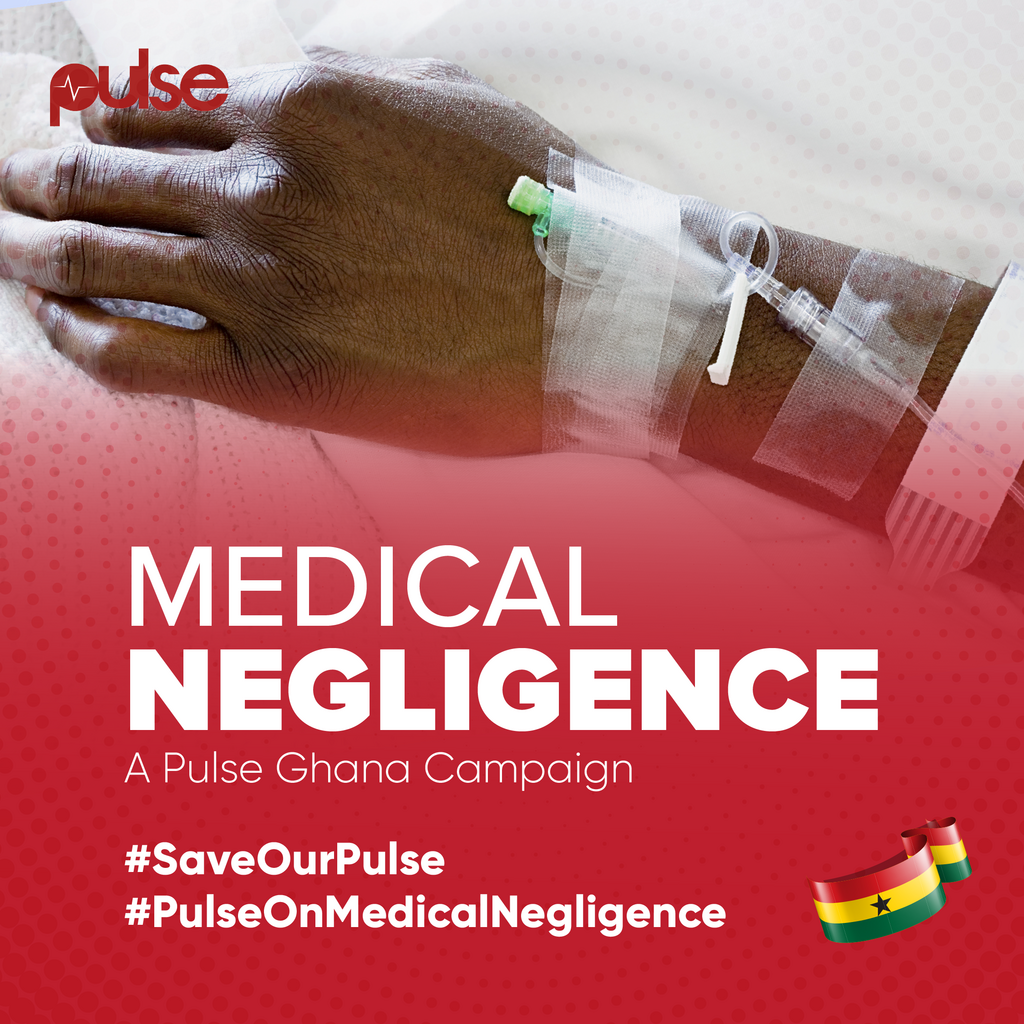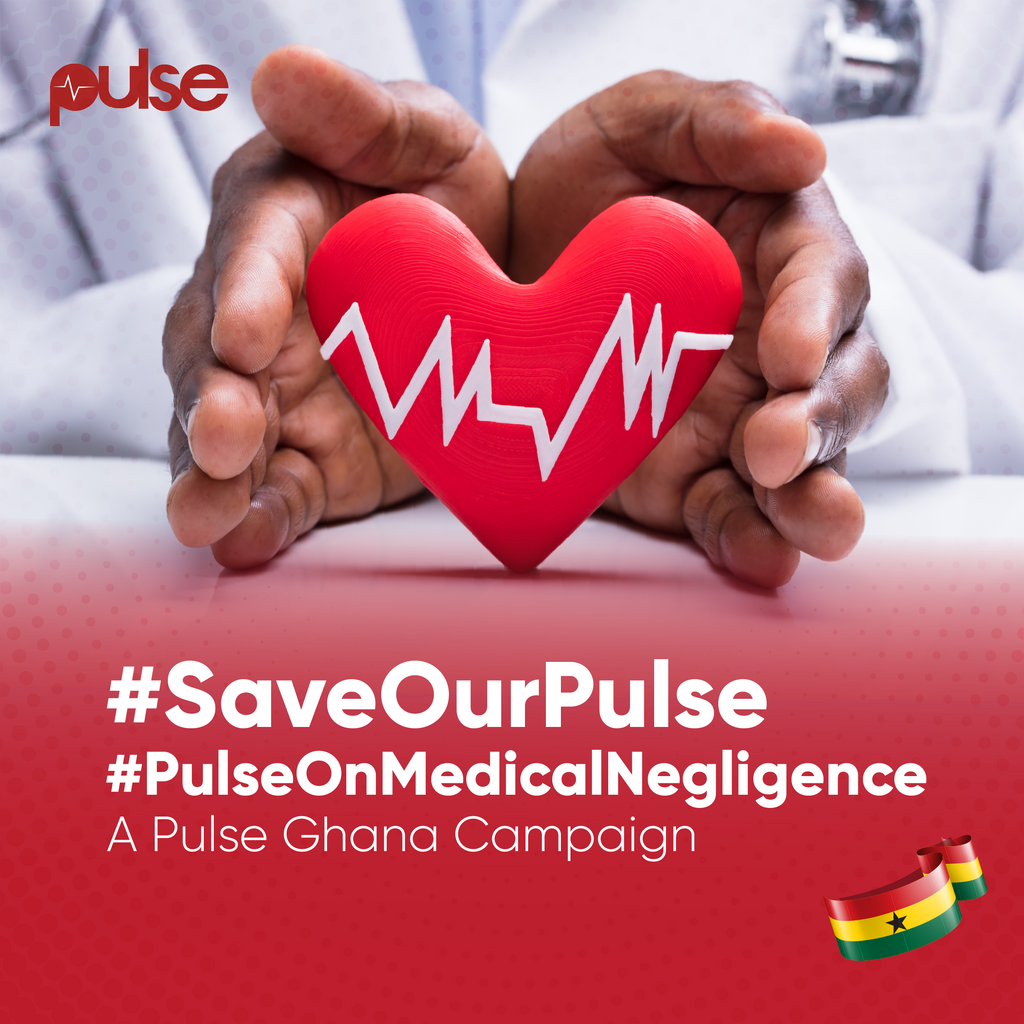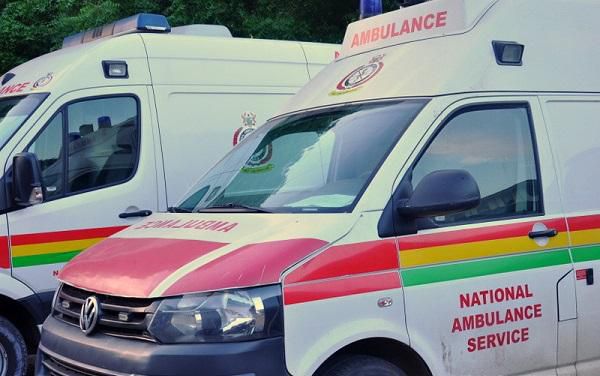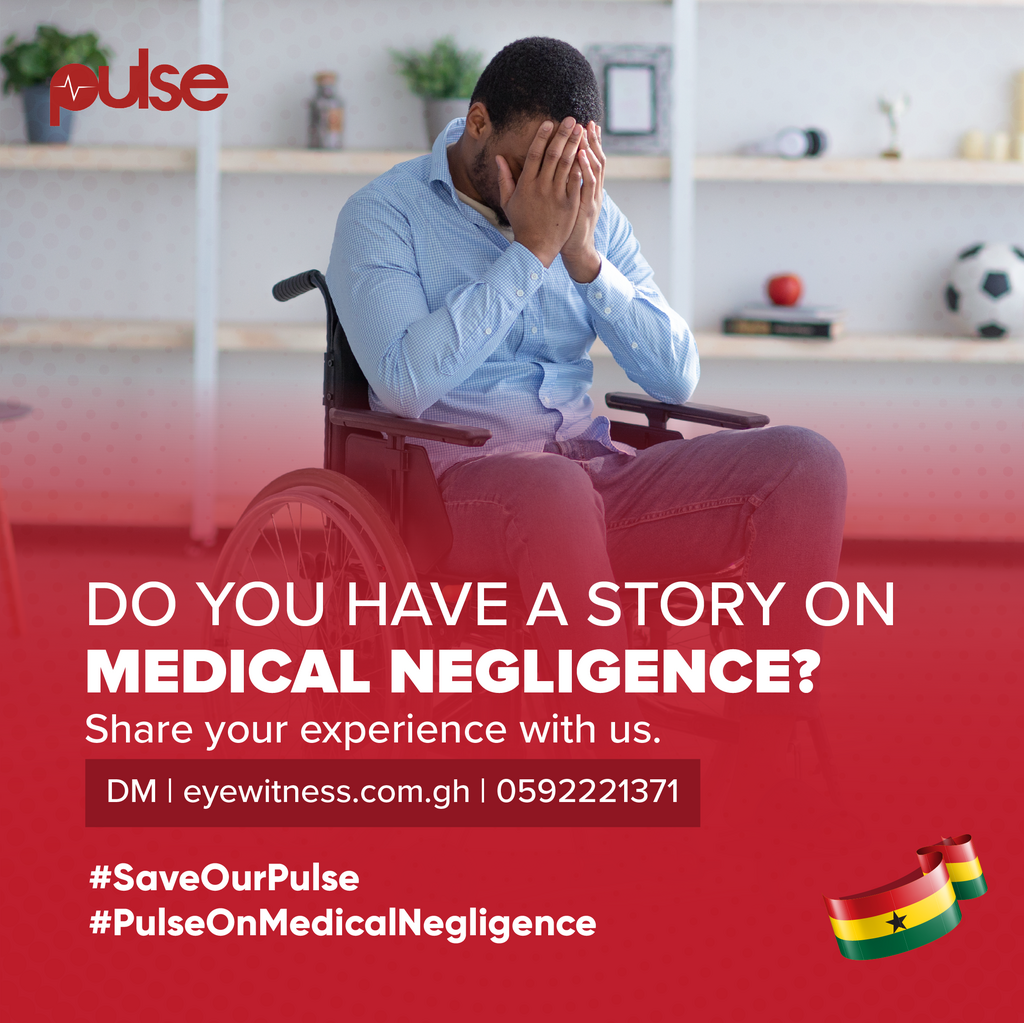How mother and son lost their lives in a Ghana health system broken beyond fix
)
Joseph and Precious sat by me as we shared ideas around running a video format in Twi. George sat across the other end of the table trying to make a point.
I hear a buzz in my pocket. I take out my phone from my pocket and look, losing track of the point George was making. ‘Freeman’ shows on the screen. Two possibilities run through my head from our earlier conversation that day.
I swipe to the right and say “Hello Free” as I always respond to his calls. Dead silence. Not literally at this moment though.
A mother’s son
Thomas Freeman Yeboah was looking into the death of his mother on January 20, 2021, at the A.G.A Hospital, Obuasi. The circumstances around the death of his mother per his narration did not sit well with him.
According to Freeman, his mother had visited the A.G.A Hospital with a host of symptoms. Having shown some symptoms of COVID-19 and already with an underlying health condition, the hospital decided to run a COVID-19 test.
Freeman’s family was, however, informed that the sample had to be sent to Kumasi as the facility was not equipped to run the test. With sample taken and some medications given, Freeman’s mother was sent home.
A few days later, the symptoms got worse. The family who had chased the hospital for the earlier COVID-19 rushed the 65-year-old to the hospital again and were told they needed to run another test. Wanting to know the results of the earlier test, the hospital informed the family the test results could not be found. The main reasons for this were not given.
A second test was run and almost immediately at the A.G.A Hospital in Obuasi, not Kumasi. The family started to wonder why a hospital would tell them they do not have the means to run a test only to do it a few days later.
Results from the hospital said Freeman’s mother had tested negative for coronavirus COVID-19. The family did not know what to believe with the earlier test incident as their mother’s condition kept deteriorating.
Their push for the best conditions and medication proved futile. There was no monitoring of vitals. For someone restless, the conditions in which she was being monitored at the hospital was not comfortable to say the least for a seriously sick patient. Attention to detail was lacking. Monitoring the patient by health professionals was a problem. In simple terms, although she was at the hospital, she was on her own.
Eventually, on January 20, 2021, she took her last breath on earth leaving her children as orphans and in a situation they felt could have been avoided if the health professionals and health facility had been diligent enough.
Thomas Freeman Yeboah started his probe. He went to Obuasi from Accra to get first-hand information from the hospital. Initially, he was being engaged. However, when the hospital found out that he was serious about all the negligence in the processes that led to his mother’s death, things started getting difficult.
He could no longer get meetings with the right people in charge. He was no longer being handed the information he needed to understand and pursue the case.
Freeman had to change his strategy. Since he did not have enough on his case, he decided to petition the Ghana Medical Association to help with his case. He did his research and write-up and shared with some colleague journalists to go through before submission. That’s when he fell ill and decided to seek treatment.

Back to the phone call
Two possibilities run through my head when I received the call from Freeman because of our earlier conversation.
He had called earlier in the day to take the day off to visit the hospital. Having not been feeling well for some time, he just wanted to run a precautionary COVID-19 test at the Noguchi Memorial Institute.
I didn’t expect a call from him so soon since his test result was due on Saturday from the Thursday that he took it. So, the possibilities were either the result was processed earlier (since Freeman knew a lot of people) or just an update of what had happened in the day.
However, the possibility went far away from the two thoughts.
“Hello, this is Freeman’s wife,” a shaky voice said with some signs of trembling that could be felt as shivers went down my spine.
This was unusual. What had happened? Why would Freeman’s wife call me at this moment with his phone? Our earlier conversation about him being unwell now becomes a huge deal in my mind.
“Freeman has had an accident. He is at the Legon Hospital now. He is unconscious,” Freeman’s wife said in tears.
I went blank for a moment. I did not know how to react. But I had to be strong for this woman. I could not add to her shock of her husband lying unconscious on a hospital bed.
“Keep calm. I’m coming” were the words that came from my mouth. She says her thank you still sobbing and hangs up.
I rush to HR’s office. On my way I see her leaving as the day was over. I notify her and a few minutes later we were on our way to the Legon Hospital with George, hopeful of a better outcome of the entire situation. But things would not be that straightforward.
‘No Insurance Accepted’
The first surprise at the Legon Hospital when we entered was a bold inscription letting patients and caretakers know that medical insurance is not accepted at the hospital. It was solely ‘money na hand, back na ground’ kind of affair. If you did not have the cash, look elsewhere.
Medical insurance was a big conversation when former President John Agyekum Kufuor introduced the National Health Insurance Scheme during his tenure.
After a host of political gimmicks and flattery, the National Health Insurance Scheme is currently in a worst state than it started when it should be the other way round.
For Legon Hospital, it was not just the National Health Insurance Scheme that has been a subject of controversy around acceptance and payment. It was about all insurance schemes. Nothing was accepted.
We made provision for physical cash as our Managing Director Katharina Link hit the ATM for cash to meet us at the hospital since all banks were closed by then.
Freeman’s wife had already been briefed around the cash-only policy and was already aligned with the hospital to initiate tests.
Irrespective of what happened, Freeman was still scheduled to be transferred as the hospital had a scheduled fumigation exercise the next day and could not keep him as a patient.
Nurses’ neglect - Perspectives
When we got to the Legon Hospital, visiting hours were over so we could not enter. However, the attending who did not introduce himself allowed us to stand in the hallway where we could see across the room as Freeman lied on the bed.
Just by his bed were two nurses having a conversation around something hard to know.
Thomas Freeman Yeboah had not moved an inch according to his wife since she had been at the hospital. The health officials knew that and could testify to that. Any movement is an improvement to his old state and could help with the diagnosis in a layman’s eye.
So when Freeman started to raise his head and suddenly go up from lying to sit on his bed, the expected reaction from the nurses who sat by him was to help him with whatever was going on with him.
For someone who had been involved in an accident and come in in an unconscious or semi-unconscious state, medical drama gives the idea that they must be stabilised without a lot of motion until scans highlighted what the problem was.
Freeman’s scan was not in yet but the nurses kept looking on as whatever that was happening in his body kept happening.
His wife, who is also a nurse, could not stand it anymore. She rushed into the room despite visiting hours being over, tore off his singlet, cleaned the fluids coming out of his nose and mouth and stabilised him on his bed until he was calm again. The nurses still looked on without a care.
This highlight coupled with a host of things we had experienced at the hospital had a huge blow on our hope. The situation could be salvaged but will our healthcare delivery allow us to salvage the problem? This was the bigger question.

The transfer
Despite the ‘money first’ that screamed in loud silence when we got to the University of Ghana Medical Centre, that hospital in terms of equipment and machinery is the best place a patient could have in the country.
Mistakes from our time at the Legon Hospital had instantly been laid bare in our first action at the UGMC.
I had earlier made enquiries around the mode and process of transfer to the attendant who seemed unconcerned. We had to sternly criticise his trip from the ward to the ambulance after waiting hours to get an ambulance for the transfer. For him, it was just a push to the ambulance. No precaution, no care.
Having met a doctor friend and one that our HR knew too at UGMC, we figured the attendant who we thought was a doctor was not. He was just a man acting on instructions. He could not read the scan. He knew nothing about what he was doing and acted in oblivion or so it seemed.
The doctor friend takes a look at the scan and starts questioning how the transporting was done. The scan he claimed did not say much.
“His condition looks worse than the scan so we have to be extremely careful in how we handle him,” the doctor tells us.
We then move on to transfer Freeman to a bed in the UGMC ward and we are puzzled as to how to go about it with this new information about being extremely careful.
Legon Hospital had failed to follow procedure for the transfer. The only option we had was to hold Freeman’s body and lift him from the bed since there was no blanket and straps to stabilise him.
Our attendant from the Legon Hospital is still baffled by all this. He still has not wrapped his head around why we can’t just pick and drop. Looking at his demeanour, my heart breaks for all the families who have passed through his hands.
With the help of nurses around, this doctor friend directs on a way to stabilise Freeman and aids with the transfer to a UGMC bed. He supervises as his monitor is fixed to check his vitals.
He assures us that we are in good hands after asking the name of the surgeon we were transferred to and says his goodbyes since he was just there to drop a patient. That was not his base. Throughout the evening, this was the only time we had genuinely been engaged, assessed and had the opportunity to ask questions about what was happening and it was all because we had a personal relationship with the doctor we met at UGMC.
How many times are you likely to meet someone you know during an emergency?

COVID-19 emergency
“Who is in charge here? We called and were asked to bring this patient here! This is an emergency, please!,” a nurse fully clothed in COVID-19 PPE screams in the hallway at the UGMC entrance. No one is responding to her though.
It’s been around 45 minutes since we got to the University of Ghana Medical Centre. An ambulance we met there is still parked at the entrance.
Upon enquiry, there was a COVID-19 patient who was in a critical condition and needed transfer from Nyaho Medical Centre. His doctor had called the UGMC to confirm his transfer but the nurses had been stranded for over an hour with no one to receive them. They were losing their patience. The situation was urgent but the people who were to receive the transfer were not acting as such. The lead nurse was furious and that was the reason for her scream.
It would take another 30 minutes before the transfer was initiated for the COVID-19 patient in a critical condition. His friends restless as every minute that passed meant they had to hold their breath and hope for a better outcome. Sad. Very sad.

Emergency, but …
Throughout our dealings with Ghana’s health system and processes for Freeman, one thing stood out. The word ‘emergency’ meant nothing to almost every health official we encountered, or so their actions made us believe.
In an ideal world, a health emergency means the problem must be fixed first before any other dealings. People’s lives matter and that should be the only important factor when death is a high possibility. Ghana is not in the category of an ideal world.
Health officials went about giving us ‘buts’ after telling us it was an emergency.
‘It’s an emergency. He needs urgent care but we take only cash and you have to pay.’
‘It’s an emergency but we do not have beds’
‘It’s an emergency but the specialist is not around’
‘It’s an emergency but a lot of buts’
UGMC took Freeman’s second scan and told us he needed immediate surgery. Emergency at the highest level.
The call was made to Korle Bu Teaching Hospital to a specialist since he did not have the expertise to perform the surgery.
We were asked to arrange a transfer after the specialist accepted to do the surgery. Freeman was transferred to the Korle Bu Teaching Hospital early Friday morning.
Korle Bu made us understand the surgery was imminent and that they needed blood. We sent a message across and had people ready to donate.
Since the conversation and initial understanding was for the surgery to be done early Friday morning, we did not pay close attention to finding a bed where Freeman’s vitals could be monitored since he was about to go into surgery anyway.
A few hours later, the hospital made us understand the surgery could not be done on Friday but Saturday. And that if they were to do the surgery on Saturday, they no longer needed the blood donation. That could be sorted. The explanation for the delay was they needed to run their own tests.
We then moved on to finding Freeman a bed where his vitals could be monitored as he was still in the same condition like we had found him after his accident.
That was a task no Ghanaian deserves to go through.
At some point, we had to have nurses giving hints to Freeman’s wife who was a colleague nurse to know where to direct our concerns to and literally pressure to get what we were looking for. But for another personal and professional relationship, every effort would have yielded no results.
Friday is almost over and it's mostly been dialogue on what was deemed an emergency surgery in the past 12 hours.

Surgical equipment - Donkomi oo donkomi
Saturday brought its own stories - one that baffles.
We had been assured that the surgery would happen on Saturday. However, in the early hours of Saturday, there was a twist.
The surgery was not cancelled. But there was some surgical equipment the hospital did not have.
This time, it was no longer about making payment for the hospital to find a way to purchase thhe equipment. The instruction was for us to go out there, find the equipment, buy and bring it back to the hospital for the surgery.
With all her network as a nurse, Freeman’s wife roamed the streets of Accra and made calls to different parts of the country but her efforts to find the equipment were not successful.
In all of these, we still engaged the hospital.
Hours went by before the hospital gave us an option. They had found a seller who had the surgical equipment. The instruction was for us to send payment to the seller for the equipment to be delivered to the surgical team. We were not going to see the equipment but we were assured it would be delivered.
At this point, there was no option or need to argue about the process due to Freeman’s condition so we agreed.
All this while communication with the hospital was through our specialist’s assistant. He made us understand the surgery would be pushed since a few things needed to be sorted. Hope was the only medication Freeman was on now. Hope that he had more breathe to last the back and forth that had gone on in the last 48 hours.
It is finished!
The specialist’s assistant was frank with us early Sunday morning. He explained that to have the surgeon in on Sunday for the surgery would be a miracle - one other medication we hoped Freeman would get.
We had acknowledged the earliest possible time Freeman could get a surgery was on Monday. So, our attention had shifted to giving him the best care that would stabilise him for the next 24 hours. It was a daunting task but we persevered.
Our perseverance was not enough.
Our hope was not enough.
The miracle did not happen. Maybe the miracle did for two days from when he had his accident hoping humans would play their part.
Around mid-afternoon, Thomas Freeman Yeboah lost his life.
As doctors rushed to his bed with his wife looking, failing to stop the tears, failing to control her actions that were fuelled by sad emotions, she was excused and in the end, was informed she had lost her husband.
It starts to play in her mind what could have been. But then again, it is finished.
Speculations
Freeman was not the first to experience this in Ghana. His family had seen it all before in January with their mother before a second blow was served in February.
And Freeman’s story sounded familiar to a lot of Ghanaians.
The speculation is that maybe, just maybe the doctors saw it was not a condition that could be saved.
Granted.
Why not inform the family then, to make them choose how his last hours or days on earth would be?
Freeman was very religious. Maybe he would have appreciated his pastor saying a prayer for him before he left the world. Maybe he had other things he had confided in his wife and family.
Also, why would you let a visibly sorrowful wife roam the streets of Accra to look for surgical equipment when there was no need?
However, these are speculations.
Speculations that were borne out of the numerous medical negligence situations in Ghana leaving citizens to make their meanings to understand the logic.
Sadly, the many cases have compounded to this story of how a mother and son lost their lives in a Ghana healthcare delivery system that needs total overhauling.
Pulse Ghana’s Medical Negligence campaign is dedicated to Thomas Freeman Yeboah, our former colleague and Ghanaian sports statistician. #SaveOurPulse #PulseOnMedicalNegligence
![Here are 7 foods you need to eat for increased sexual stamina [Credit: Improving Men's Libido]](https://image.api.sportal365.com/process/smp-images-production/pulse.com.gh/07082024/7f28ded6-60fb-48fe-9ec0-fcc952726c62?operations=autocrop(640:427))
)
)
)
)
)
,fit(112:112))
,fit(112:112))
)
)